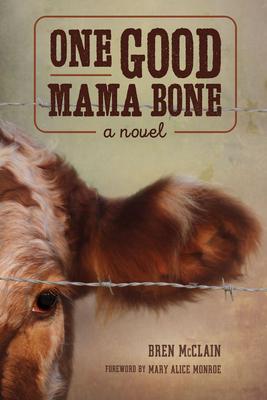A novel of courageous parental love and the instructive, healing bonds that form between humans and animals
Set in early 1950s rural South Carolina, One Good Mama Bone chronicles Sarah Creamer's quest to find her "mama bone," after she is left to care for a boy who is not her own but instead is the product of an affair between her husband and her best friend and neighbor, a woman she calls "Sister." When her husband drinks himself to death, Sarah, a dirt-poor homemaker with no family to rely on and the note on the farm long past due, must find a way for her and young Emerson Bridge to survive. But the more daunting obstacle is Sarah's fear that her mother's words, seared in her memory since she first heard them at the age of six, were a prophesy, "You ain't got you one good mama bone in you, girl."
When Sarah reads in the local newspaper that a boy won $680 with his Grand Champion steer at the recent 1951 Fat Cattle Show & Sale, she sees this as their financial salvation and finds a way to get Emerson Bridge a steer from a local farmer to compete in the 1952 show. But the young calf is unsettled at Sarah's farm, crying out in distress and growing louder as the night wears on. Some four miles away, the steer's mother hears his cries and breaks out of a barbed-wire fence to go in search of him. The next morning Sarah finds the young steer quiet, content, and nursing a large cow. Inspired by the mother cow's act of love, Sarah names her Mama Red. And so Sarah's education in motherhood begins with Mama Red as her teacher.
But Luther Dobbins, the man who sold Sarah the steer, has his sights set on winning too, and, like Sarah, he is desperate, but not for money. Dobbins is desperate for glory, wanting to regain his lost grand-champion dynasty, and he will stop at nothing to win. Emboldened by her lessons from Mama Red and her budding mama bone, Sarah is committed to victory even after she learns the winning steer's ultimate fate. Will she stop at nothing, even if it means betraying her teacher?
McClain's writing is distinguished by a sophisticated and detailed portrayal of the day-to-day realities of rural poverty and an authentic sense of time and place that marks the best southern fiction. Her characters transcend their archetypes and her animal-as-teacher theme recalls the likes of Water for Elephants and The Art of Racing in the Rain. One Good Mama Bone explores the strengths and limitations of parental love, the healing power of the human-animal bond, and the ethical dilemmas of raising animals for food.
